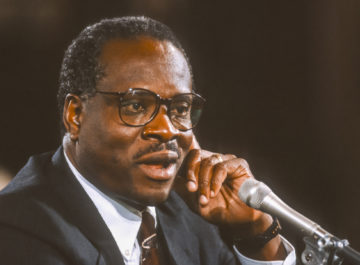by Mark Harvey
Out of the crooked timber of humanity, no straight thing was ever made. —Immanuel Kant

I have a couple of friends in my county who might be considered high-powered on the local level. One is a district judge and the other is a county commissioner. I’ve invited the judge to a few local gatherings that support relatively benign conservation groups. He has always declined, saying that he may at some point have to rule on one of their cases, so he doesn’t want any appearance of supporting the group outside of court. I recently invited the county commissioner to a benefit dinner for another conservation group. He accepted the invitation but insisted on paying his way through a donation to the organization as he didn’t want to accept any gift from me. Compared to some of the all-powerful Supreme Court justices like Clarence Thomas and Samuel Alito, who rule the land, their ethics are studied and consistent. On Chief Justice John Robert’s court, their ethics might be considered quaint and would find no home.
Thomas and Alito have both accepted extravagant paid vacations worth tens and hundreds of thousands of dollars by political operatives and businessmen who have a lot to gain from having Supreme Court decisions go their way. In Alito’s case, he joined hedge-fund billionaire Paul Singer on his jet to Alaska for a fishing trip in 2008 and then failed to recuse himself on a 2014 Supreme Court decision that ensured Singer netted billions of dollars from a business deal. ProPublica, arguably the best investigative journalism operation in the world, wrote about the story in June. Anticipating the story when ProPublica sent him a list of questions about the Singer trip, Alito wrote a sort of preemptive editorial in the Wall Street Journal defending the trip—before the story was even written.
Part of Alito’s defense of flying on Singer’s jet to Alaska was that there was an empty seat that would have otherwise gone unused. That feeble excuse harkens back to the days of the notoriously corrupt New York Alderman, George Washington Plunkitt, who made the famous distinction between “honest graft” and “dishonest graft.” Serving in the New York City government in the late 19th century, Plunkitt knew in advance what lands would be necessary to complete a public park. So he bought the land and then sold it to the city at a very tidy profit. As he put it, “There’s an honest graft, and I’m an example of how it works. I might sum up the whole thing by sayin’: ‘I seen my opportunities and I took ’em.’” Read more »
